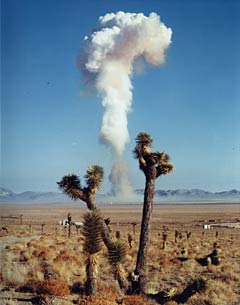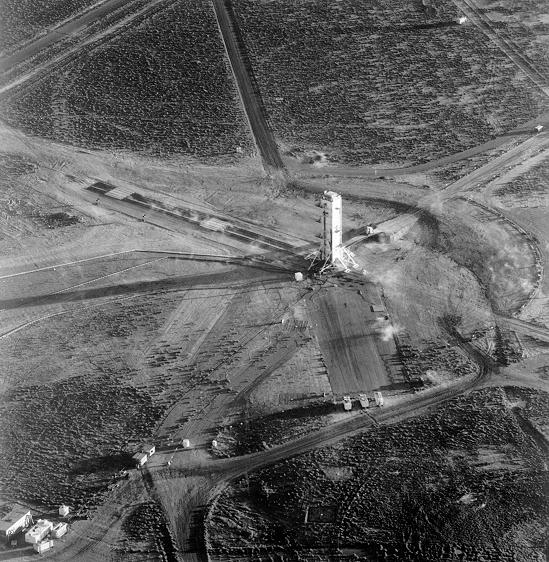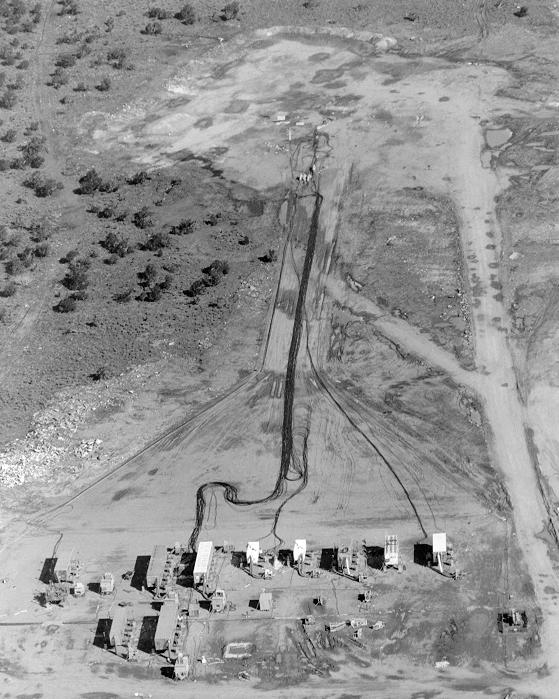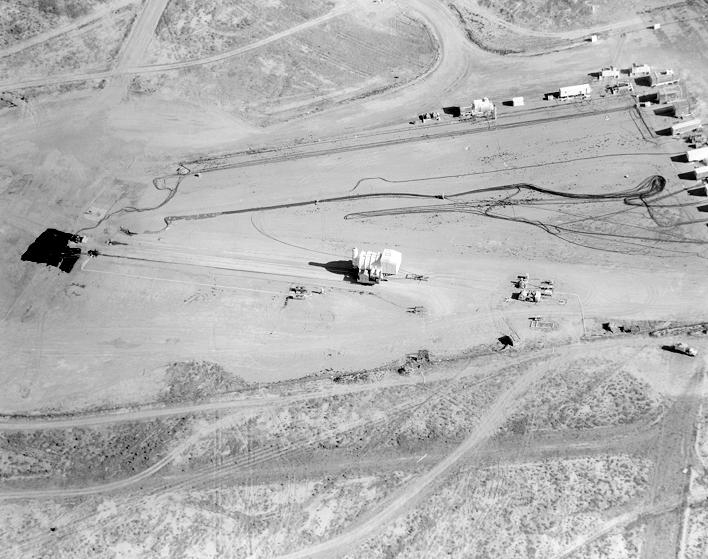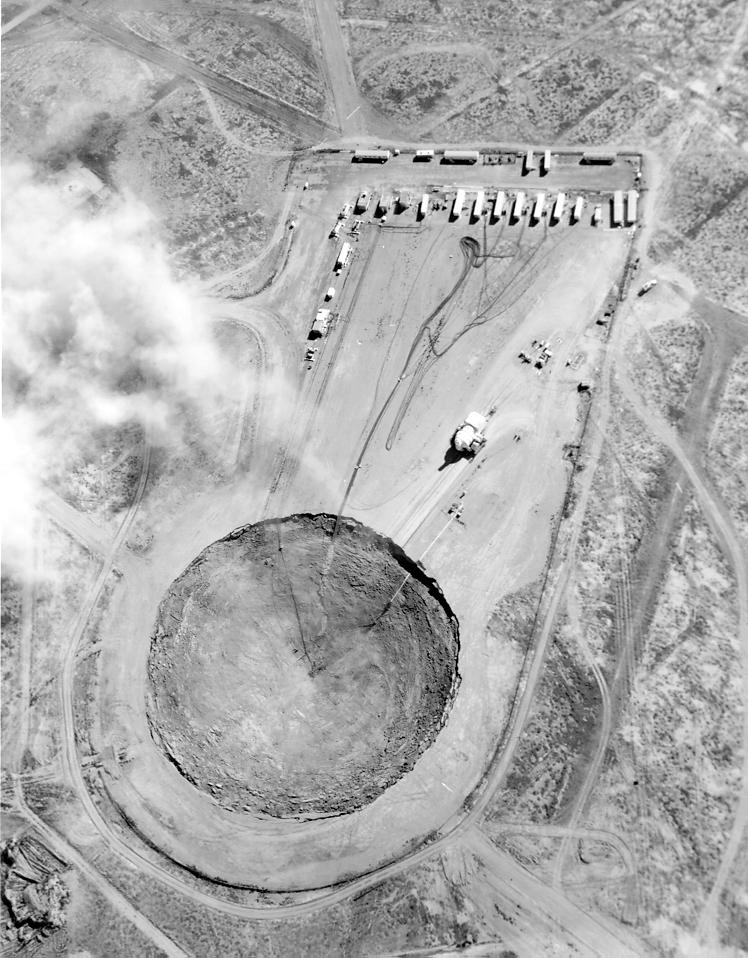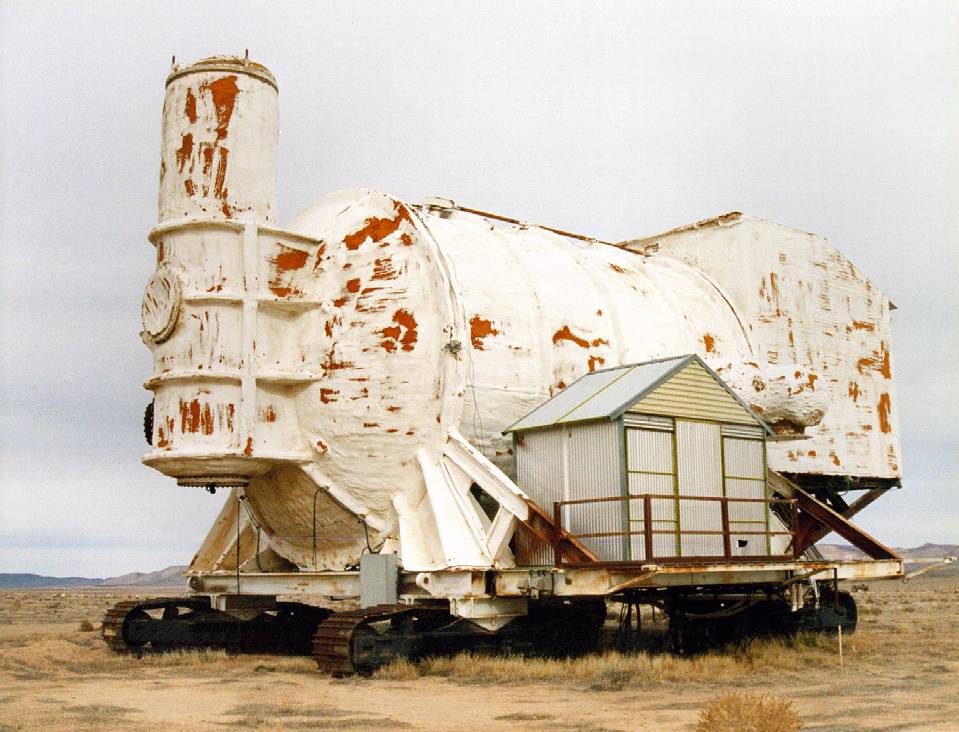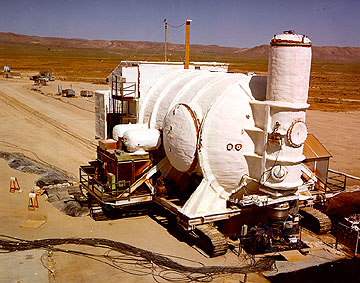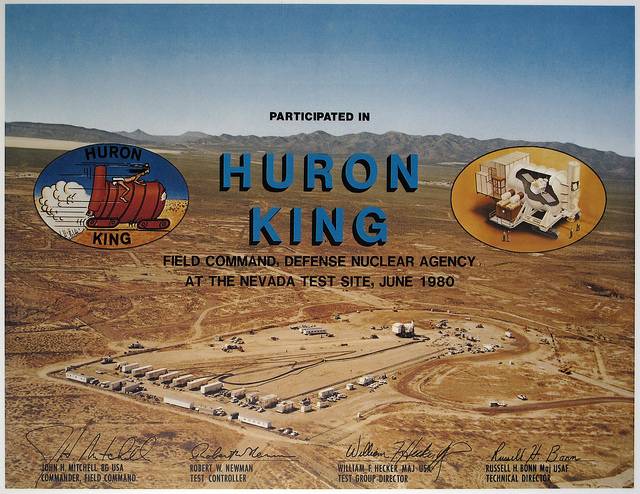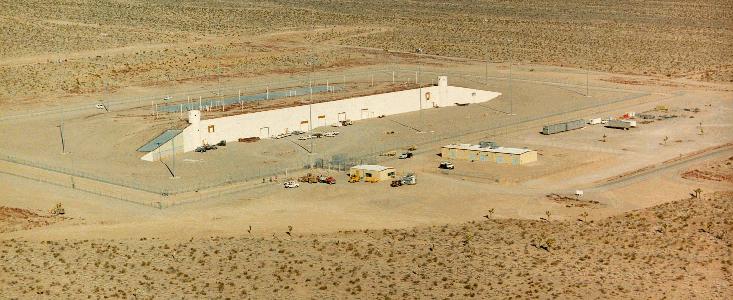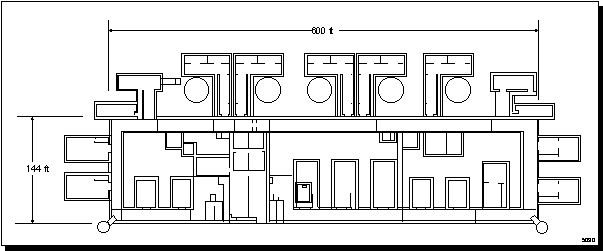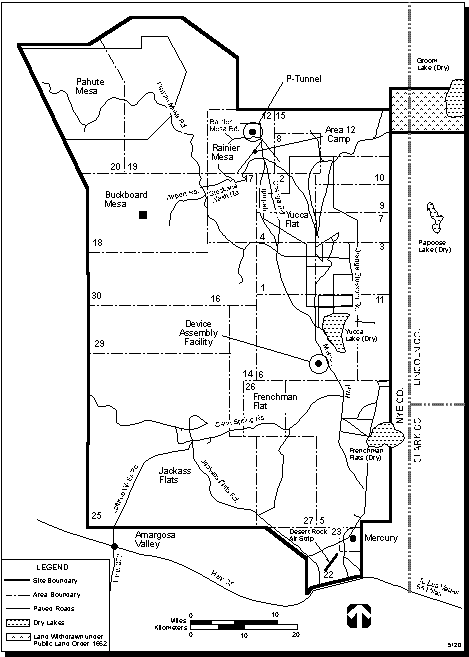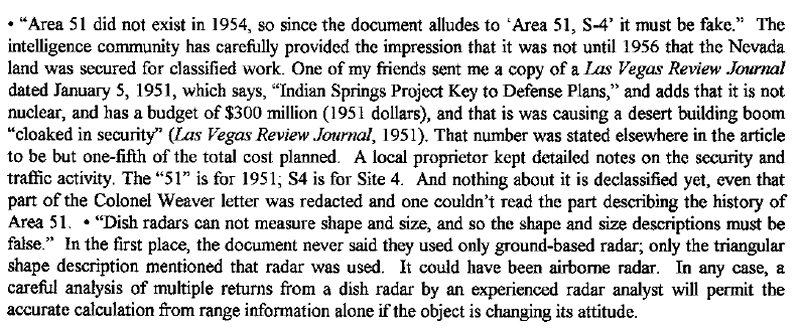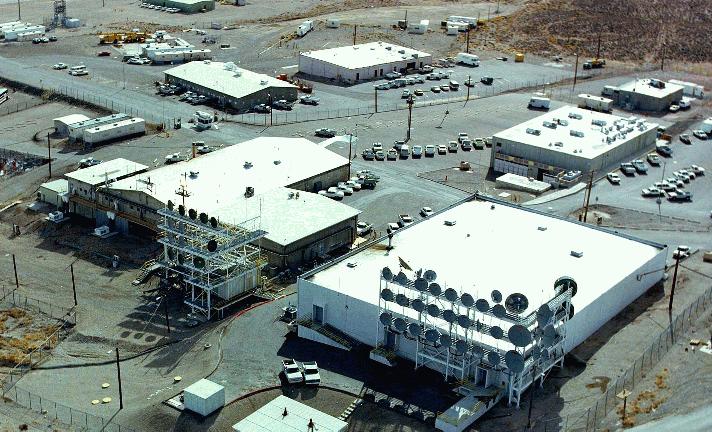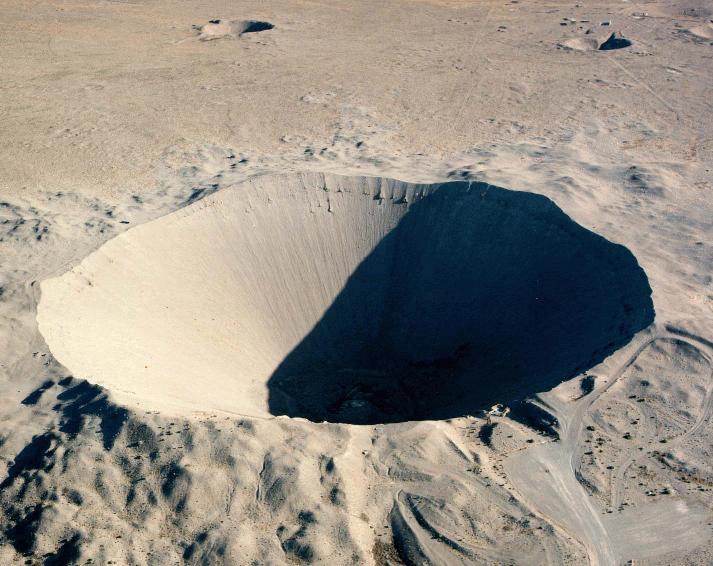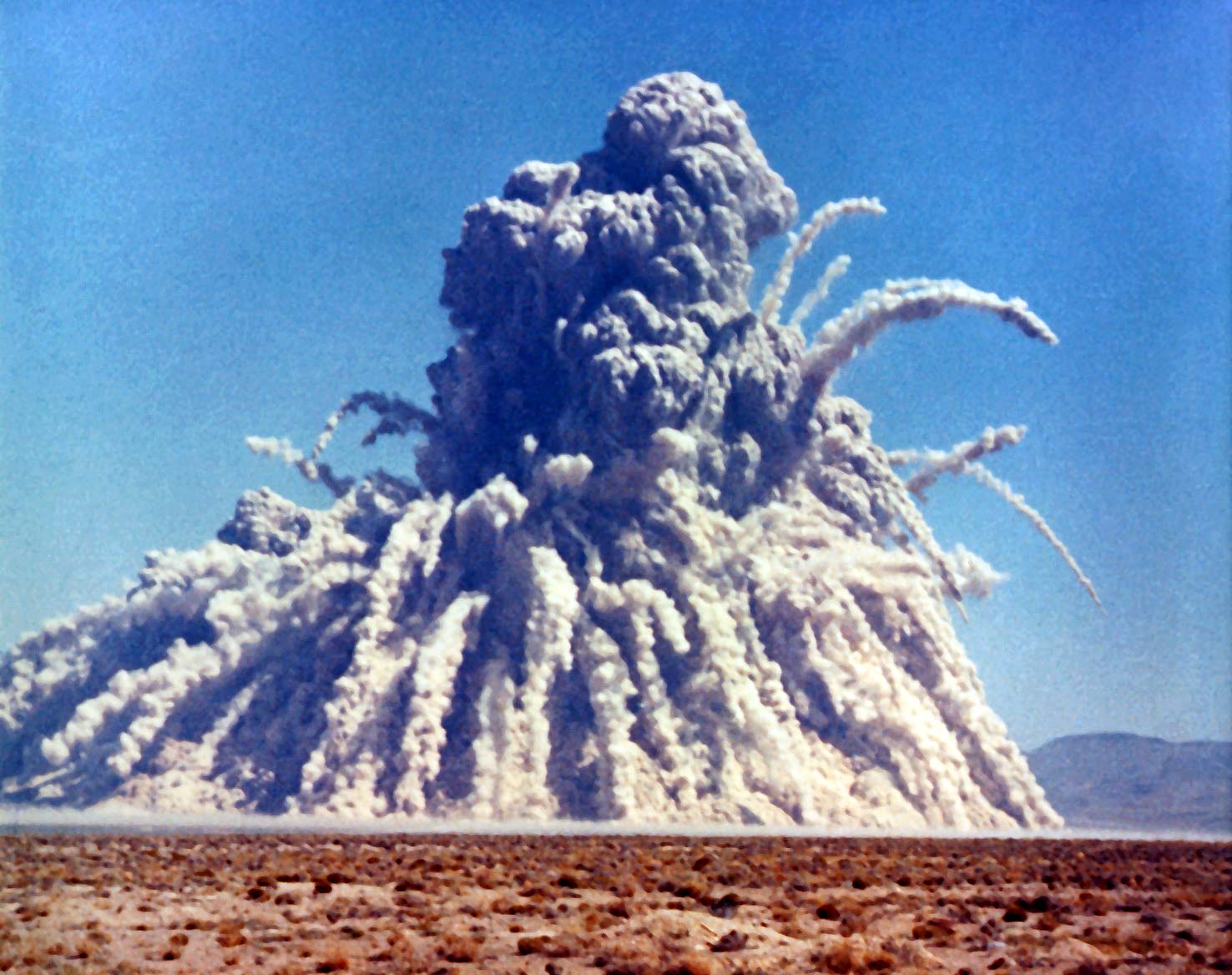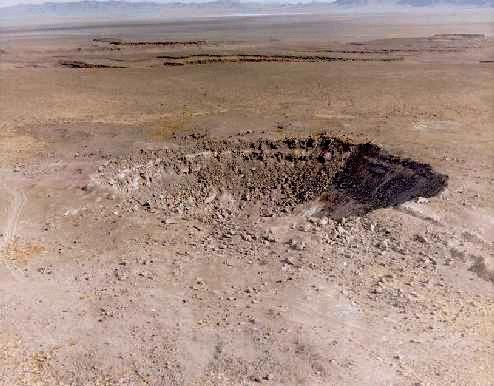|
Nevada |
|||||||||
|
..
Test site workers win round for
claims
By KEITH ROGERS
After nine years of denials and setbacks in a government program to compensate former Nevada Test Site employees for work-related illnesses, the retired nuclear weapons workers and survivors got some good news this week. The agency charged with reconstructing their exposures to radioactive and toxic materials, which is key to proving or disproving their claims, has reversed its previous stance, saying instead the historic data needed for dose reconstructions are insufficient. After a review of the tedious process, the National Institute of Occupational Safety and Health is recommending special status that will give more than 500 former Nevada Test Site workers the benefit of the doubt. Their claims for at least $150,000 apiece plus medical expenses will be processed without having to estimate the exposures through costly and time-consuming dose reconstructions if the institute's recommendation is approved by a work group next month and later by a presidential advisory board and is accepted by the secretary of the Department of Health and Human Services. Congress would have a chance to reject the recommendation, but that is unlikely, according to sources close to the program. Dose reconstruction is a process of going back in time and trying to determine about how much radiation a particular worker was exposed to. Approving the special status would mean former test site workers or their families from the days of below-ground nuclear weapons testing, 1963 to 1992, would have to show only they worked at the test site for 250 days during that period and were afflicted by one of the more than 20 cancers covered by the program. "As presented in this position paper, NIOSH believes that there is insufficient information to adequately support ... reconstructing internal dose with sufficient accuracy," reads the report issued Wednesday. The report recommends special status for all employees from the Energy Department, its predecessor agencies, contractors and subcontractors who worked at the test site, 65 miles northwest of Las Vegas, from 1963 to 1992. Workers during the years of above-ground nuclear weapons testing in Nevada, 1951 through 1962, already have been granted special exposure status. In the years since the Energy Employees Occupational Illness Compensation Program was announced in 2000, John Funk, chairman of the nonprofit Atomic Veterans and Victims of America Inc., has advocated reform in the program. Many times he has asked officials for the departments of Energy and Labor to put test site workers on par with out-of-state groups of Cold War nuclear workers that have been granted what is known as "special exposure cohort" status. "They caved in because everything they tried didn't work," he said Thursday, reacting to the NIOSH position paper. "I'm glad to hear it. This has been long and hard," Funk said. Funk praised the efforts of Sanford Cohen and Associates, an independent contractor that conducted a review funded by the federal Centers for Disease Control and Prevention. "Sanford and Cohen stood in our corner. Those guys put up a hell of a battle for us," he said. A report last year by Lynn Anspaugh, a health physicist from Henderson and a Sanford Cohen associate, found that records and data about exposures were either flawed or missing and that the NIOSH model for dose reconstruction based on records of 100 co-workers was not defensible because the records weren't representative of all areas of the test site. In an e-mail Thursday, Anspaugh said, "We are gratified that NIOSH has finally moved to bring this long process to an end." Similarly, Sen. Harry Reid, D-Nev., who has backed a petition for special status for test site workers, said in a statement that he is "so pleased to share this good news with Nevada's energy workers, who were instrumental to our nation winning the Cold War." "I look forward to the advisory board taking up the favorable NIOSH recommendation as soon as possible so that our sick test site workers and their families can finally get the compensation they deserve," Reid said. Some former workers have died since their claims have been denied or while they waited for government agencies to act on their claims. The Labor Department took over the Energy Employees Occupational Illness Compensation Program from the Department of Energy in 2004 after Congress determined the Energy Department was taking too long to handle a backlog of cases. So far, the program has cost the government at least $391 million to administer and has resulted in more than $2.47 billion in compensation to claimants nationwide. Contact reporter Keith Rogers at krogers@reviewjournal.com or 702-383-0308. |
|||||||||
| The Following Photos provided by the US Department
of Energy
Courtesy of GlobalSecurity.org |
|||||||||
|
Area 5 RWMC - Waste Storage ..
U.S. Department of Energy photograph Photo Number: WB010 Solid low-level wastes generated by weapons production are packaged, transported, and buried without changing the package integrity. (Area 5 Radioactive Waste Management Site, Nevada Test Site)
U.S. Department of Energy photograph Photo Number: WB212 The Low-Level Waste Management site at the Nevada Test Site provides efficient disposal of radioactive wastes generated in the nuclear weapons program. Waste is trucked to the site in Department of Transportation approved containers and buried in the large trench. As it fills, the pit is covered with soil and marked on an identifying grid at the surface. |
|||||||||
|
Area 12 - Old Photos ..
Photo Number: AEC-70-8662 Little more than a minute after a mid-1969 underground nuclear detonation, the ten-story tall 200-ton instrument tower was pulled along tracks by cables from above the detonation point. About 20 minutes later, the ground collapsed into the cavity caused by the detonation, producing a 175-foot crater.
Date: April 1978 Photo Number: 343 003 001 Aerial view of the recording
trailer park and the cables
The HURON KING underground nuclear test was a DOD sponsored event on 24 June 1980. The test involved a device with a yield of less than 20 kilotons, and tested the effects of system generated electromagnetic pulse [SGEMP] on a full-scale operating DSCS-3 military communications satellite. The spacecraft was contained in a large above-ground tank.
The HURON KING underground nuclear test was a DOD sponsored event on 24 June 1980. The test involved a device with a yield of less than 20 kilotons, and tested the effects of system generated electromagnetic pulse [SGEMP] on a full-scale operating DSCS-3 military communications satellite. The spacecraft was contained in a large above-ground tank.
Huron King Test Chamber located to the right of 3-08 Road in Area 3. The Huron King test chamber contained a communications satellite and other space-related experiments, and simulated a space environment. It was used for a rare type of Vertical Line of Sight underground test conducted by the Defense Nuclear Agency, forerunner of the Defense Threat Reduction Agency. The device, which was less than 20 kilotons, was detonated on June 24, 1980. Credit: US Government
The Huron King test chamber containing a communications satellite and other space-related experiments is readied for its test on June 24, 1980 at Yucca Flat. Credit: US Government
Photo Number: WB212 The Area 12 Camp, located at the extreme Northwest end of the Nevada Test Site, supports miners from the tunnels in Ranier Mesa with overnight accommodations for 600 people. |
|||||||||
|
More DOE Photos ....
U.S. Department of Energy photograph Photo Number: NF1679 Final test preparations include running miles of cable downhole which will transmit vital test information to the diagnostic trailers to the left. A rack containing instrumentation to go down-hole is assembled in the tower to the right. Subsidence craters from earlier underground tests dot the landscape.
U.S. Department of Energy photograph Photo Number: NF136 The Device Assembly Facility (DAF) at the Nevada Test Site (NTS) is used to support activities related to nuclear test readiness and science-based stockpile stewardship, including assembly of subcritical experiments. The DAF mission is to provide a modern, safe, and secure facility for NTS nuclear explosive operations.
..
..
..
U.S. Department of Energy photograph Photo Number: NF1762 At the Nevada Test Site (NTS) Control Point, dish antennas serve the test controller's closed circuit television system, microwave communications on NTS and telephone network.
U.S. Department of Energy photograph Photo Number: NF121 Sedan Crater was formed when
a 100 kt. Explosive buried under 635 feet of desert alluvium was fired
at the NTS on July 6, 1962, displacing 12 million tons of earth. The crater
is 320 feet deep and 1,280 feet in diameter.
Storax Sedan
shallow underground nuclear test by the United States, used for a
cratering experiment. 6 July 1962 (GMT), Nevada Test Site Yield: 104 kt.
The main purpose of the detonation was to asses the non military
dimension of a nuclear explosion. Credit: National Nuclear Security Administration Nevada Site Office Photo Library Sedan Nuclear Test - Wikipedia
U.S. Department of Energy photograph SCHOONER nuclear test crater. |
|||||||||
| FAIR USE NOTICE: This page contains copyrighted material the use of which has not been specifically authorized by the copyright owner. Pegasus Research Consortium distributes this material without profit to those who have expressed a prior interest in receiving the included information for research and educational purposes. We believe this constitutes a fair use of any such copyrighted material as provided for in 17 U.S.C § 107. If you wish to use copyrighted material from this site for purposes of your own that go beyond fair use, you must obtain permission from the copyright owner. | |||||||||
|
|
